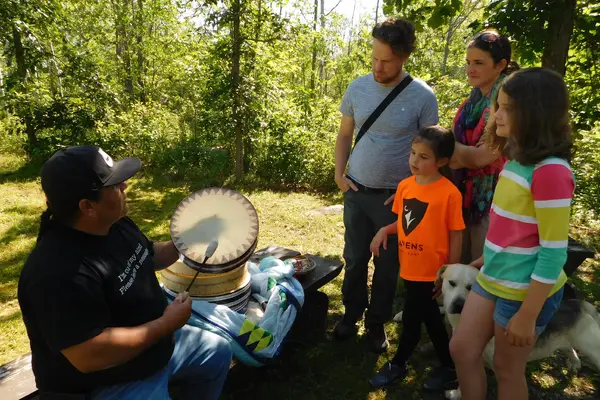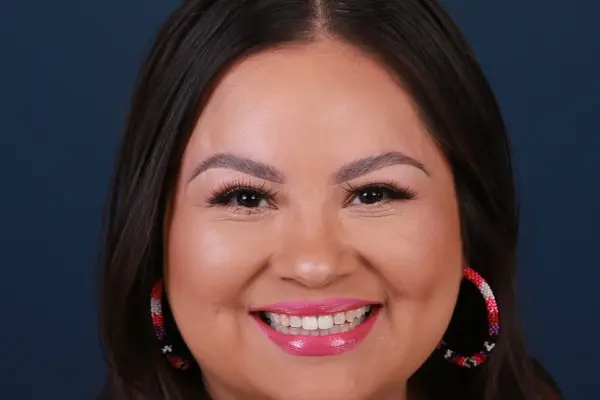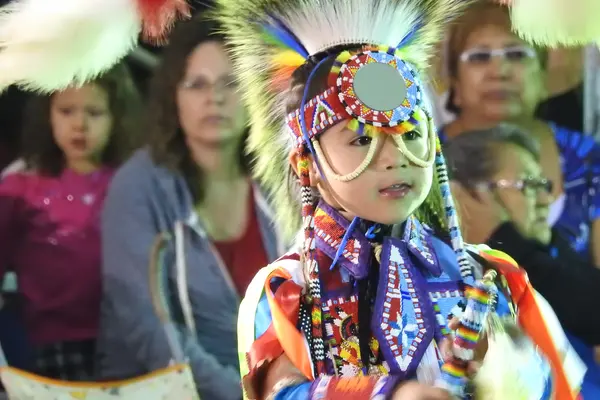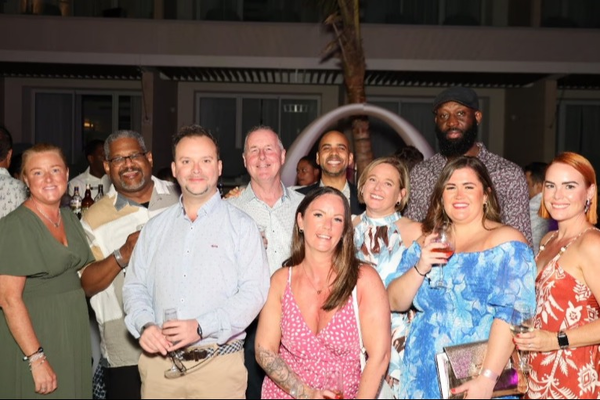‘Society thinks the injustices of our people are historical – they're not’
 Katherine Masters
Katherine MastersIndigenous tourism is vital in bridging the intercultural gaps shaped by Canada’s challenging history, says the Indigenous Tourism Association of Canada’s director of marketing, Tamara Littlelight

Travel agents and tour operators, please support businesses that directly benefit Indigenous peoples and communities, urged Tamara Littlelight in an emotionally charged interview with TTG.
Introducing herself, the director of marketing for the Indigenous Tourism Association of Canada (ITAC) said: “My spirit name is Miskgogeezikwe, meaning Red Sky in the Morning Woman. I am of Saulteaux, Cree, and Metis descent, rooted in Treaty 4 territory in Saskatchewan, Canada.”
Before European settlers arrived, Indigenous people in Canada thrived. Tamara explained that they were hunters, fishers, farmers, healers and gatherers, and they lived sustainably in harmony with the land. Language was the cornerstone of their identity, and ancient wisdom was passed down the generations, through stories, songs and ceremonies.
She said: “Indigenous people are often referred to in the past tense or through an exclusively historical lens. While this perspective is deeply problematic, I can’t help but find it comical. Because aside from the glaring fact that I am standing right in front of you, Indigenous communities are stronger than ever. We are reclaiming who we are and taking up more space than ever before. Our cultures, languages and traditions are flourishing.”
In Canada, the Indigenous community comprises three distinct groups. The Metis are descendants of mixed ancestry, primarily First Nations women and European men. They played a crucial role in the fur trade and were instrumental in shaping the history of Western Canada.
The Inuit are the Indigenous people of the Arctic regions of Canada, including Nunavut, the Northwest Territories and Labrador. Their heritage centres on traditional practices of hunting and fishing, and they have developed innovative techniques for survival in a challenging environment.
The First Nations are the most diverse group, with more than 630 distinct communities across Canada. Each community has its own unique culture, language and traditions, deeply rooted in a sense of community, respect and spirituality.
A history of abuse
Referring to a “dark chapter of history”, Tamara described how colonial laws and policies harmed Indigenous people, snatching their land and stripping away their languages, traditions and sense of self. The residential school system forcibly removed Indigenous children from their families and communities to assimilate them into Euro-Canadian society but, in reality, they fostered abuse, neglect and cultural genocide.
Canada’s first prime minister, Sir John A Macdonald, is quoted as saying “take the indian out of the child” in his 19th century defence of the residential school system.
Many children suffered physical, sexual and emotional abuse, and thousands never returned home.
She continued: “Both sets of my grandparents endured the horrors of residential schools, as did my parents. At the age of 14, my single mother enrolled me at White Calf Collegiate, formerly known as Qu’Appelle Indian Residential School, which was shut down in 1998 – only 26 years ago. The same residential school my maternal grandfather graduated from in 1957, I would graduate from 40 years later, witnessing firsthand, and personally experiencing the enduring impact of intergenerational trauma in our communities.”
“This is why the narrative is problematic. Society thinks the injustices of our people are historical. They’re not, and still present today.”
The discovery of unmarked mass graves at ex-residential school sites in Canada as recently as 2021 bore witness to the devastating truths of Indigenous history.
Beyond the residential schools, the Indian Act and various treaties were used to control and marginalise Indigenous people. “These policies resulted in the loss of lands and autonomy, creating a legacy of suffering and trauma that persists to this day," explained Tamara.
Despite the challenges of her upbringing – her father’s alcoholism and her mother’s tenacity in the face of domestic violence – she resolved not to be defined by adversity. “A catalyst for my healing has been the work I undertake in the field of Indigenous tourism. It allows me to experience the catharsis of cultural revitalisation and economic empowerment in our communities.”
Truth and reckoning
Working for the ITAC, Tamara has reconnected with her roots, embraced her identity and found a profound sense of purpose and belonging. This transformation in personal growth and healing is mirrored in fellow survivors, she explained.
“Canada faces a crucial moment of reckoning, compelled to listen, learn, and confront this painful reality,” she stated. “By supporting businesses that directly benefit Indigenous peoples and communities, we are not just acknowledging the past but actively shaping a more inclusive and compassionate future.”
More than 1,000 Indigenous tourism experiences are available across Canada. Supported by the Indigenous Tourism Association of Canada, these initiatives are driving positive transformations in communities. “Cultural centres, guided tours, culinary offerings, and public events celebrate and preserve our traditions, asserting our pride and strengthening our collective voice,” she said.
With experiences that are accessible for all, they can offer a pathway to connection: “Our traditional knowledge and practices are not mere artefacts of history; they are living traditions that offer profound insights for addressing modern challenges. In a world grappling with environmental crises, climate change and resource depletion, Indigenous ways of knowing and being offer a blueprint for sustainable living,” Tamara concluded.
She urged travel agents selling Canada to share Indigenous stories with their clients: “Travel serves as a powerful means of education and connection, bridging gaps and cultivating empathy. By guiding your clients to engage respectfully and meaningfully with Indigenous cultures, you contribute to a more inclusive and compassionate world. In doing so, you offer travellers a unique and unforgettable experience.”
Sign up for weekday travel news and analysis straight to your inbox

Katherine Masters
Supplier Directory
Find contacts for 260+ travel suppliers. Type name, company or destination.















